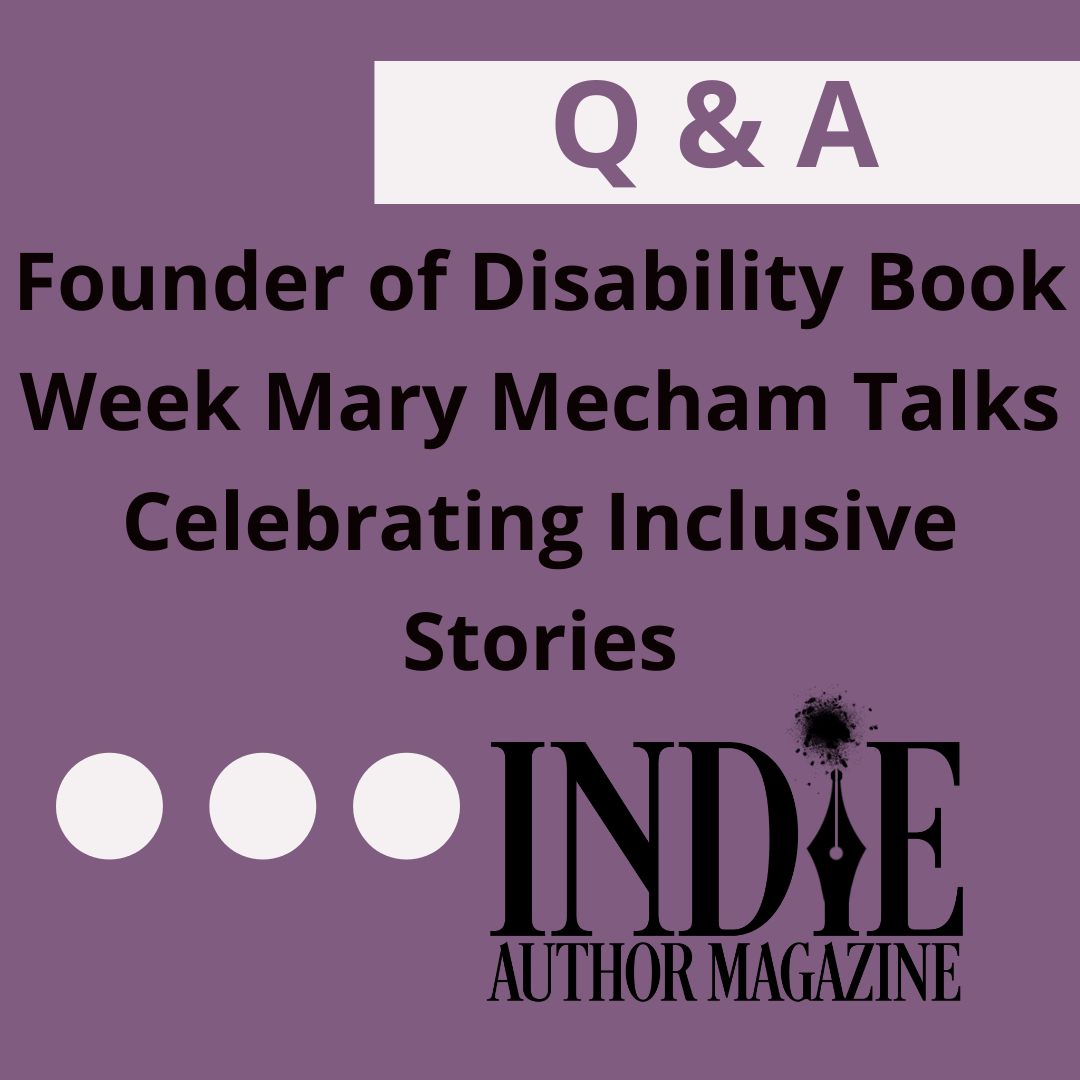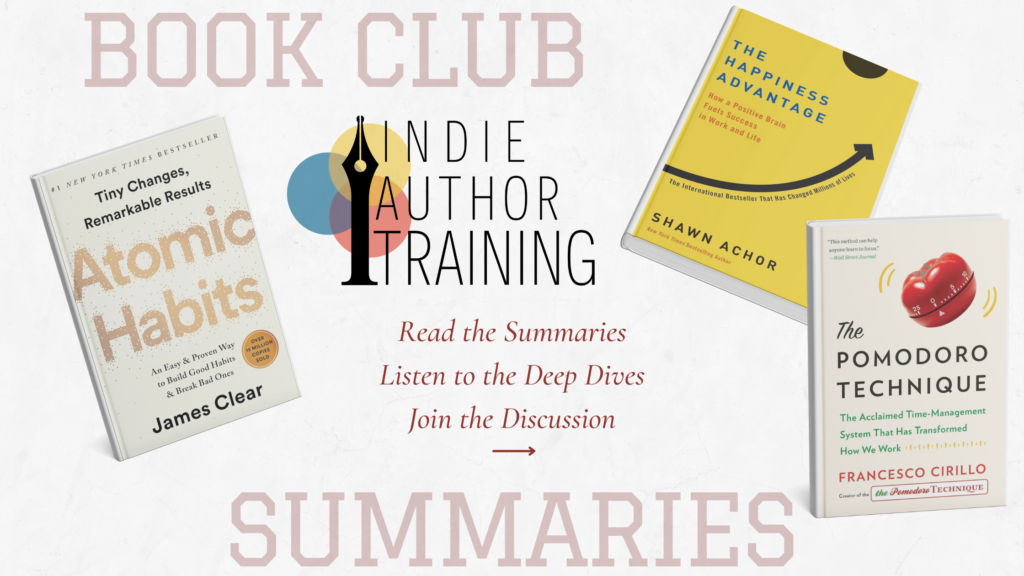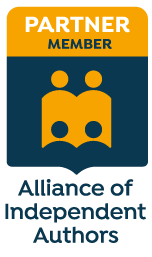A Q&A with Disability Book Week Founder Mary Mecham
Nicole Schroeder
Author Mary Mecham is passionate enough about books to have a collection of almost three thousand of them in her house. “It’s basically a library here,” she jokes. She shares the passion with her two daughters, both of whom have rare genetic conditions that carry a range of additional diagnoses, including severe intellectual disability. Mecham reads to them every day—and recently, she decided she wanted to read her daughters a book with a character they could identify with.
First, she scoured her shelves for books with intellectual disability representation. Then she broadened her search to include any books with disabled characters as main characters.
She found sixteen, half of which were from the same series.
The discovery put Mecham on the search for more books with disability representation, especially those written by disabled authors. As her list grew, she wanted to share the stories she’d discovered with others. Three years later, she’s doing just that as the founder and current director of Disability Book Week, an annual international event celebrating inclusive literature. The event, which takes place April 23–29, invites the book community to read and promote stories with disability representation, with organizers offering their own recommendations based on the reviews of a sensitivity panel. Indie Author Magazine spoke with Mecham to discuss the importance of inclusive stories and how authors can get involved.
Note: Responses have been edited for length and clarity.
Why is disability representation important in fiction?
I don’t know if I’m a good person to answer that, because I personally don’t have a disability, but on behalf of someone like my daughter, who can’t necessarily speak for herself—she’s nonverbal—it means so much to be able to identify with a book character. Living with a disability can feel very isolating, so reading a book where there’s a character who has the same disability—and then when it’s an accurate representation—can help a person feel so seen.
Even if someone doesn’t have a disability, I can guarantee they know somebody with a disability. I think the CDC estimated 27 percent of American adults have had a disability at some point in their life or are currently experiencing a disability. That’s a fourth of our population. And yet disability-inclusive books are maybe 0.5 percent, 1 percent of books. And that’s a huge discrepancy.
Should non-disabled authors write disability-focused stories?
My opinion is that the gold standard is that the individual with the disability writes the book. That is their story. That is what you want, ideally.
Next down is someone who does not have a disability but is very intimately involved in the disability community. An example of this would be a CODA, a child of deaf adults. They grew up in a deaf household. They’re very, very familiar with how all that works. They’ve talked to their parents. They know what that’s like, so even though they themselves are not deaf, they are immersed in that world in a way that someone else is not.
And then the next one is an individual who is an author who does not have a disability, but they have an extensive sensitivity panel that screens their book multiple times to make sure that there’s no inaccuracies and that the disability is portrayed in a positive and empowering way, that it doesn’t go into any of the negative stereotypes that perpetuate myths that are just not true about the disability community.
What are some stereotypes that authors should avoid?
One of my favorite examples of this is blindness. When we look at popular media, individuals with blindness are usually portrayed as having cloudy eyes and seeing only black. Think of the Jedi in Star Wars: Rogue One. He can sense everything around him. Or it’s very popular to have an individual who’s blind and sees the future—like Mama Odie from Princess and the Frog. That’s very, very common. And while it’s not like we’re going to think, “Oh, they can have the Force. They’re going to see the future,” it is perpetuating that blind people see only black, which is only true for a small percent of individuals with visual impairment.
Another example is autism. Everyone always thinks, “Oh, well, Sheldon Cooper probably has Asperger’s, and he’s brilliant.” So it’s things like that, where the intent is good, and they really are trying to be inclusive. They’re just not quite sure how to portray that in an accurate manner because they may not have had that experience.
How do you celebrate Disability Book Week?
Here in the States, we really encourage self-advocates to try and get a proclamation from their mayor, from their governor, which is basically when they write in to their mayor, to their governor, and say, “Hey, we want this recognized in our state or in our town.” And then they go around to libraries, to schools, to bookstores, and say, “Hey, could you put up a display? Can you invite an author with a disability?”—just to get it in front of people’s eyes and raise that visibility.
We also have our disability board, and they go through and review books—some of them they have just picked up, and some that people will send in to get reviewed. We have a list that can be printed off on our website, and we have a lot of schools and libraries that go onto that website and find all the books or order some to put in their libraries and to put up displays.
How can authors get involved?
It’s really, really easy to get involved. Just tell your readers, “Hey, guys, I’m participating in a Disability Book Week” or “I’m reading this for Disability Book Week.” A lot of authors that we work with that have disability representation in their books will also put their book on sale or things like that, just to try and encourage people to to snag that book, to read it and gain some perspective there.
One of the great things about Disability Book Week is it’s so adaptable. We’ve had people run their book clubs, and then we have schools that have speakers come in. We had librarians—oh, my goodness, they are saints! They are so excited about these things. But they were putting up displays. We have a really strong social media campaign, so for our self-advocates, who are maybe homebound or don’t have a lot of mobility, they can still get on their computer and share their message that way. That’s what I love about Disability Book Week—there’s something for everyone.
Resources
To see the Disability Book Week’s recommended books for disability representation, visit https://disabilitybookweek.org. Submissions are closed for this year’s event, but keep an eye on the site for when you can submit your book for consideration in the future.
Rosalie Mastaler’s Ultimate Book List compiles disability-inclusive books for all age ranges. Find it at http://rosaliemastaler.com/the-ultimate-book-list.
Know of any directories or recommended reading lists for finding inclusive titles that we missed? Let us know at feedback@indieauthormagazine.com!
Nicole Schroeder





